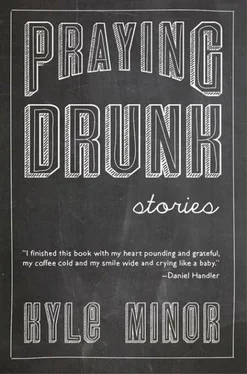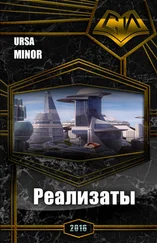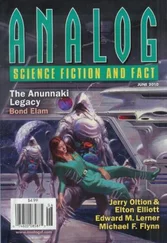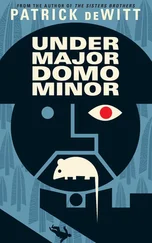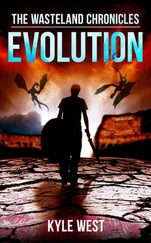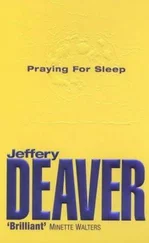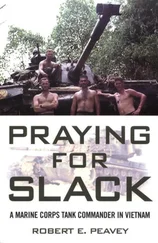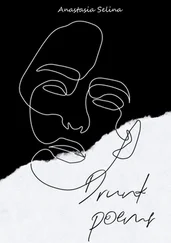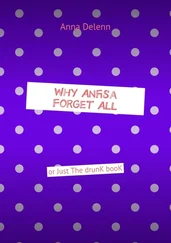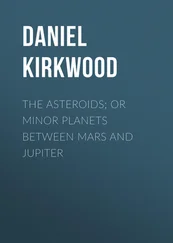He pushed on his cane. With some effort, he sat upright in his chair. With his shaking hand, he handed the cane to his son. With great effort, he reached both hands to his pants button and his zipper. He said, “I will show you.” He unbuttoned his pants, and he unfastened his zipper. With both hands, as if presenting a bouquet of flowers, he held himself out to us. What he showed was mostly tumor. His penis and his testicles had shriveled to a flaccid tininess. Most of his hair had fallen away. Only a slight smear of peach fuzz remained, and it was slick with a yellowish-white discharge from a suppurating wound that was on the tumor but not of the tumor.
“Bondye said,” the old man said again, “this man will come. You will show him your wound. He will lay hands on your wound, and your wound will be healed.”
Everyone was looking at me. Sebastian, with his good eyes. The man’s son, with his cataracting, failing eyes. The old man, with his blind eyes. Even the tumor seemed like a giant dying eye. The man’s son was nodding, as if to say: Go ahead. Sebastian was watching, as if to see what kind of man I was after all our time together.
I held out my hands. I cupped them as if I were preparing to draw water from the river. I put them on either side of the tumor. My right wrist grazed the old man’s tiny penis, and my left wrist grazed his testicles. The skin swollen by the tumor was hot, and the skin covering the genitals was as cold as a slab at the morgue. “You must pray,” the son said. “Our Father, who art in heaven,” I said. It wasn’t a prayer to the sky. It was a prayer to the people in the room. If there was any belief to borrow, it was all theirs.
Then I couldn’t remember the rest of the words to the prayer, even though it was the most famous prayer in the world. In my mind, it had become conflated with a less famous poem, by an American who had once been my teacher at the university. Our Father who art in heaven, I am drunk. Again. Red wine. For which I offer thanks. I ought to start with praise, but praise comes hard to me. I stutter. .
I had not memorized the whole poem, but I did remember the ending, the beautiful ending. The drunk, praying, thinks of himself as an old-time cartoon character, a poor jerk who wanders out on air and then looks down. Below his feet, he sees eternity, and suddenly his shoes no longer work on nothingness, and down he goes. The drunk prays: As I fall past, remember me .
It seemed as fitting a prayer as the one I had forgotten. I cobbled together bits and pieces of both, and drew on the language of special pleading I remembered from all those dreary years at the Cherry Road Baptist Church. I used the words suppurating, and grapefruit, and hot and cold, and shrivel and shrink.
When I was done, nothing happened. Everyone was as blind or cataracted or tumored or lying or despicable as we had been before we prayed, and my hands were wet with white and yellow pus. I told the old man I was sorry. Nothing happened. He had not been healed. I must not be the man Bondye had sent from over the sea. He said, “We must wait. Bondye’s time is not our time.”
Outside, I asked Sebastian, “How much is the surgery.”
Sebastian said, “All surgeries are three hundred dollars.”
I said, “I have four hundred dollars in my pocket. I’m going to give all of it to him.”
Sebastian said, “If you give him four hundred dollars for his surgery, they will use it to buy sand and Portland. Or they will use it to buy a window. Or they will use it to buy corrugated aluminum for a roof. The old man will die soon no matter what you do.”
“What can I do?” I said.
“You can give the money to me,” Sebastian said. “I will take it to pay the doctor, and I will pay the tap-tap to take him to the doctor.”
I looked at him, and I knew. He would take the money and put it in his pocket, and I would never see him again. Or I would see him again the next time he wanted some money.
“No,” I said, quietly. “No, no.”
I put the money back in my pocket and vowed to return after we did the count in Mirebalais — in three weeks. Pick up the old man myself. Take him to the hospital myself. Pay for the surgery myself.
In later years, a woman told me: Who do you think you are, to play God? Who do you think you are, the savior of the world? I said: I only wanted to save this one man for a little while. I knew he was going to die soon.
Three weeks passed. We returned to the village. Another casket, a cheap one, was marching up the street. So many of the pall-bearers were blind. “Don’t worry,” Sebastian said. “You took his tumor in your hands.” “But I didn’t cut it out,” I said. “You should have given me the money,” he said.
7. At the Marché
A few days later we went to the Marché en Fer to buy fruits and vegetables. The whole market had fallen down in the earthquake, but now an Irishman had rebuilt the clock tower and the minarets, restored the masonry, and reinforced the iron columns. The Irishman said the new walls were earthquake-proof, and the roof was covered with solar panels.
These were the days when it was hard to walk into a building and not be afraid the walls and the roof might fall on you and crush your head. You looked for a space beside a sturdy piece of furniture, and traced an invisible line at a forty-five degree angle, which you’d dive beneath for shelter at the first shake. Every so often, continuing to this day, another building would fall in an aftershock. All over the country we saw three-story buildings pancaked to one story, and lo these years later, the bodies still inside. They didn’t even stink anymore. Almost for certain, the bacteria and the worms and the rodents had picked them to bones.
But it wasn’t like the early days. People were moving. Children in uniforms walked to school in the mornings. The tap-taps were full of men carrying their work tools in canvas bags. In the city, the cell phone vendors walked the streets in their red smocks and carrying their red phones, selling rechoj cards, and soda and water vendors walked through the traffic jams, carrying on their heads cardboard boxes full of plastic sugar-and-caffeine concoctions and vacuum-sealed plastic bags of water.
In the Marché, I bought two bottles of Atomic Energy Drink, one for me and one for Sebastian, and he bought me a styrofoam container full of griot and fried plantains and pikliz. I bought him a pizza from a vendor billing herself as the Walt Disney Pizza Company. Famous mice and dogs and ducks decorated the sign behind her.
We took our food outside and crouched in the shade of the nearest wall. While we were eating, Sebastian said, “When you leave, will you come back?”
I stopped eating for a moment. An uncharacteristic sincerity was in his eyes. I didn’t trust it.
“You are my good friend,” he said.
But that’s what everyone said. Everyone who wanted something. I could see myself, in a few weeks, sitting on my couch in Florida, watching football. The job was over. There was no reason for me to stay. “What will you do,” I said, “after I leave.”
He patted his wallet, where he kept some of his walking-around money, and he patted his shoe, where he kept the rest. “I have met some important people,” he said. He pointed at every ten degrees of the sky around us. “I’m going to buy a new suit. The future is big.”
Already he had gathered ten of the best English speakers in Koulèv-Ville. He planned to drill them six days a week, in the mornings, when the mind is still fresh. He planned to lease them by the day, to journalists and tourists and aid organizations of every stripe, with special rates for weekly or monthly hires. He would take twenty percent, as his fee. No longer would he be the wage worker. Now he would be the collector of the real money, the wage-giver, the big boss.
Читать дальше
